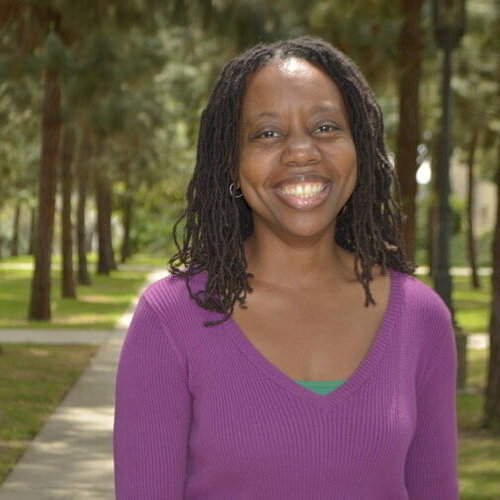PhD, MPhil, MRes Modern languages
ApplyResearch opportunities
We have full-time staff in French, Italian, Spanish and Translation studies who can offer you great expertise and supervision in your area of research.
You'll be based in our Graduate School where you'll join our current research students working across many disciplines.
You can study an MPhil over one year or a PhD over the course of three years.
You can carry out your degree in any of our research areas:
- Culture in France (including Francophone West African Culture), Italy, Latin America and Spain (19th and 20th century)
- Women’s Writers and Readers
- 19th and 20th-century History (particularly the Second World War)
- Intellectual History
- Translation Studies
MRes
Our MRes degree is available in:
- French
- Italian
- Spanish

The Place of Useful Learning
UK University of the Year
Daily Mail University of the Year Awards 2026
Scottish University of the Year
The Sunday Times' Good University Guide 2026

Fees & funding
All fees quoted are per academic year unless otherwise stated.
Entrants may be subject to a small fee during the writing up period.
Fees may be subject to updates to maintain accuracy. Tuition fees will be notified in your offer letter.
All fees are in £ sterling, unless otherwise stated, and may be subject to revision.
Annual revision of fees
Students on programmes of study of more than one year (or studying standalone modules) should be aware that the majority of fees will increase annually.
The University will take a range of factors into account, including, but not limited to, UK inflation, changes in delivery costs and changes in Scottish and/or UK Government funding. Changes in fees will be published on the University website in October each year for the following year of study and any annual increase will be capped at a maximum of 10% per year. This cap will apply to fees from 2026/27 onwards, which will not increase by more than 10% from the previous year for continuing students.
| Scotland | £4,786 |
|---|---|
| England, Wales & Northern Ireland | £4,786 |
| Republic of Ireland |
If you are an Irish citizen and have been ordinary resident in the Republic of Ireland for the three years prior to the relevant date, and will be coming to Scotland for Educational purposes only, you will meet the criteria of England, Wales & Northern Ireland fee status. For more information and advice on tuition fee status, you can visit the UKCISA - International student advice and guidance - Scotland: fee status webpage. Find out more about the University of Strathclyde's fee assessments process. |
| International | £18,050 |
| Funding | Take a look at our funding your postgraduate research web page for funding information. You can also view our scholarships search for further funding opportunities. |
| Postgraduate research opportunities | Search for all funded and non-funded postgraduate research opportunities. |
| Additional costs | International students may have associated visa and immigration costs. Please see student visa guidance for more information.
|
Please note: the fees shown are annual and may be subject to an increase each year. Find out more about fees.
Faculty of Humanities & Social Sciences Scholarships
EU Engagement Scholarships are available to EU applicants who would have previously been eligible for Home (Scottish/EU) fee status.
Our research
Our multidisciplinary research in modern languages (French, Spanish, Italian and Mandarin) investigates questions of representations, interpretations and transmissions in film, fiction, journalism, opera, print media, theatre, philosophy and translation.
Our main areas of research include:
- literature and intellectual history
- exile, trauma and wellbeing
- women writers, performers and audiences
- translating people, cultures and heritages
Within these areas, we have ongoing research projects which involve working closely with a range of external partners.

My advice for future PhD students is that before applying for this course, choose a topic that you will enjoy because you will study, eat, sleep and carry your research with you everywhere. Lean on your Supervisors and do not be afraid to admit that you need clarification or help from them.
Supervisors
| Name | Areas of expertise |
|---|---|
French |
|
| Karine Varley |
|
| Caroline Verdier |
|
| David Murphy |
|
| Sharon Deane-Cox |
|
Italian |
|
| Philip Cooke |
|
| Katharine Mitchell |
|
| Paul Hare |
|
Spanish |
|
| Lidia Acosta Mederos |
|
|
|
|
|
|
|
Mandarin |
|
|
|
Arabic |
|
|
Support & development
The Graduate School
The Graduate School is a friendly and supportive study environment for research students studying subjects within Humanities & Social Sciences.
Our staff will support you through your studies and you'll become part of a community of students who get involved with our workshops, seminars and competitions.
Postgraduate Certificate in Researcher Professional Development (PgCert RPD)
Our PgCert RPD programme aims to ensure you get the most out of your current research activities at Strathclyde and helps you prepare for your future career as a researcher.
We'll help you recognise and develop your transferrable skills that'll have a positive impact on your research, now and in the future.
Careers
The University Careers Service can help you with everything from writing your CV to interview preparation. Take a look at our careers service pages to get more information.
Student support
From financial advice to our IT facilities, we have a wide range of support for all students here at Strathclyde. Get all the information you need at Strathlife.
International students
We've a thriving international community with students coming here to study from over 140 countries across the world. Find out all you need to know about studying in Glasgow at Strathclyde and hear from students about their experiences.

Postgraduate research at the Strathclyde Doctoral School
The Strathclyde Doctoral School offers a vibrant, student-centred research and training environment, dedicated to supporting both current and future research talent.
Bringing together all four of our faculties, it is committed to enhancing the student experience, increasing research outputs and opportunities, and ensuring that training is delivered at the highest standard.
As a postgraduate researcher, you will automatically become a member of the Strathclyde Doctoral School.

Apply
Entry requirements
You normally require to have a first-class or upper second-class UK Honours degree, or overseas equivalent, in Spanish, French or Italian.
The application
During the application, you'll be asked for the following:
- your full contact details
- transcripts and certificates of all degrees
- proof of English language proficiency if English isn't your first language. For postgraduate studies, we require a minimum overall IELTS score of 6.5 or equivalent (no individual test score below 5.5, the test must be taken within two years of the programme start date)
- two references, one of which must be academic
- funding or scholarship information
- research proposal of 250 to 1,000 words in length, detailing the subject area and topic to be investigated
By filling these details out as fully as possible, you'll avoid any delay to your application being processed by the University.
Supervisors
You'll need to identify your research supervisor before you finalise your application, preferably as soon as possible. When you've identified a potential supervisor, based upon how well your research interests match theirs, drop them an email to introduce yourself.In the email, make sure you attach a draft of your research proposal along with a copy of your CV. Don't worry about how rough your research proposal may be at this stage – you'll have help from the Department of Humanities to refine it.
If your chosen supervisor is unavailable to work with you, they'll confirm this and nominate a potential second supervisor. As soon as a second supervisor is confirmed, an offer of study will be sent to you through Pegasus, our online application system.
When you accept our offer, you'll receive a full offer in writing via the email address you provide.
Accepting an offer
When you've accepted our offer, we'll need you to fulfil any academic, administrative or financial conditions that we ask.
UK or EU students
If you're applying as a UK or EU student, you'll then be issued with your registration documentation.
MRes applications
Closing date for applications: Friday 24 April 2026
- Stage 1: applicants must apply online and have uploaded the required documentation, no later than Friday 24 April 2026 deadline. Late applications will not be accepted
- Stage 2: applicants who have been successful in the initial selection from Stage 1, will be called for interview by mid-May 2026
Start date: Oct 2025 - Sep 2026
Spanish
Start date: Oct 2025 - Sep 2026
Spanish
Start date: Oct 2025 - Sep 2026
Spanish
Start date: Oct 2025 - Sep 2026
Spanish
Start date: Oct 2025 - Sep 2026
Spanish (partner organisation)
Start date: Oct 2025 - Sep 2026
Spanish (partner organisation)
Start date: Oct 2026 - Sep 2027
Spanish
Start date: Oct 2026 - Sep 2027
Spanish
Start date: Oct 2026 - Sep 2027
Spanish
Start date: Oct 2026 - Sep 2027
Spanish
Start date: Sep 2026
Spanish
Start date: Sep 2026
Spanish
Start date: Oct 2026 - Sep 2027
Spanish (partner organisation)
Start date: Oct 2026 - Sep 2027
Spanish (partner organisation)
Start date: Oct 2025 - Sep 2026
French
Start date: Oct 2025 - Sep 2026
French
Start date: Oct 2025 - Sep 2026
French
Start date: Oct 2025 - Sep 2026
French
Start date: Oct 2026 - Sep 2027
French
Start date: Oct 2026 - Sep 2027
French
Start date: Oct 2026 - Sep 2027
French
Start date: Oct 2026 - Sep 2027
French
Start date: Sep 2026
French
Start date: Sep 2026
French
Start date: Oct 2025 - Sep 2026
Italian
Start date: Oct 2025 - Sep 2026
Italian
Start date: Oct 2025 - Sep 2026
Italian
Start date: Oct 2025 - Sep 2026
Italian
Start date: Oct 2026 - Sep 2027
Italian
Start date: Oct 2026 - Sep 2027
Italian
Start date: Oct 2026 - Sep 2027
Italian
Start date: Oct 2026 - Sep 2027
Italian
Start date: Sep 2026
Italian
Start date: Sep 2026
Italian
Start date: Sep 2027
Spanish
Start date: Sep 2027
Spanish
Start date: Oct 2027 - Sep 2028
Spanish
Start date: Oct 2027 - Sep 2028
Spanish
Start date: Oct 2027 - Sep 2028
Spanish
Start date: Oct 2027 - Sep 2028
Spanish
Start date: Oct 2027 - Sep 2028
Spanish (partner organisation)
Start date: Oct 2027 - Sep 2028
Spanish (partner organisation)
Fees & funding
All fees quoted are per academic year unless otherwise stated.
Entrants may be subject to a small fee during the writing up period.
Fees may be subject to updates to maintain accuracy. Tuition fees will be notified in your offer letter.
All fees are in £ sterling, unless otherwise stated, and may be subject to revision.
Annual revision of fees
Students on programmes of study of more than one year (or studying standalone modules) should be aware that the majority of fees will increase annually.
The University will take a range of factors into account, including, but not limited to, UK inflation, changes in delivery costs and changes in Scottish and/or UK Government funding. Changes in fees will be published on the University website in October each year for the following year of study and any annual increase will be capped at a maximum of 10% per year. This cap will apply to fees from 2026/27 onwards, which will not increase by more than 10% from the previous year for continuing students.
| Scotland | £5,006 |
|---|---|
| England, Wales & Northern Ireland | £5,006 |
| Republic of Ireland |
If you are an Irish citizen and have been ordinary resident in the Republic of Ireland for the three years prior to the relevant date, and will be coming to Scotland for Educational purposes only, you will meet the criteria of England, Wales & Northern Ireland fee status. For more information and advice on tuition fee status, you can visit the UKCISA - International student advice and guidance - Scotland: fee status webpage. Find out more about the University of Strathclyde's fee assessments process. |
| International | £19,850 |
| Funding | Take a look at our funding your postgraduate research web page for funding information. You can also view our scholarships search for further funding opportunities. |
| Postgraduate research opportunities | Search for all funded and non-funded postgraduate research opportunities. |
| Additional costs | International students may have associated visa and immigration costs. Please see student visa guidance for more information.
|
Please note: the fees shown are annual and may be subject to an increase each year. Find out more about fees.


